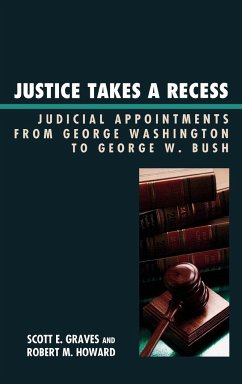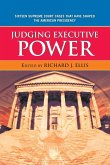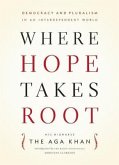Justice Takes a Recess examines why and under what circumstances presidents use the recess appointment power to appoint judges to the Federal courts. The authors show that the use of the recess power upsets the carefully calculated separation of powers envisioned by the Framers, shifting power away from one branch of government towards another.
Bitte wählen Sie Ihr Anliegen aus.
Rechnungen
Retourenschein anfordern
Bestellstatus
Storno








